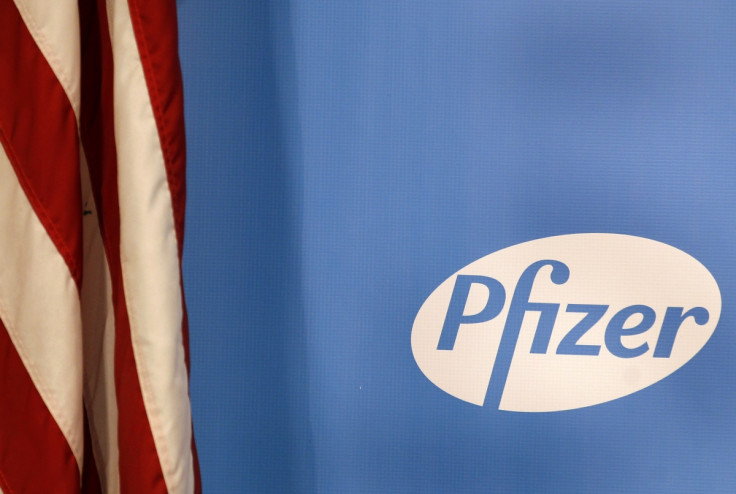Litigation is a Rich Man's Game: Finding Justice and Politics of Personalisation

Perhaps to some the word "justice" has the aura of perfection, connoting a system that apportions rights with precision.
Yet the mere existence of an appellate process assumes imperfection, mistake, human error, and the need to revisit decisions that apportion rights and property.
And even where the system works as it should, a system of justice – at least in the United States – is often incapable of making victims whole for their losses.
Mass Injustice

Just ask the shareholders of Enron who bet their savings on the Texas energy company but probably never recovered more than a fraction of their losses only because the once giant conglomerate no longer had the cash to pay claims in full.
What about the shipyard worker battling mesothelioma, a painful and suffocating cancer caused by asbestos exposure, who must settle his claims for hospital costs and pain and suffering for pennies on the dollar because the defendant's wrongful conduct was pervasive enough to allow it the protection of bankruptcy laws?
Maybe talk to the hourly wage earner who is denied legally mandated pay and benefits but must settle her case short of what is owed because she cannot wait any longer for the legal process to run its course and accord full restitution?
For those victims of mass torts, justice is often cruel. In the eyes of the legal system, their harm is not personal; it is but a mere statistic.
Think of the drug company that knowingly markets a drug to the masses without disclosing its particularised dangers or the automobile manufacturer that markets a car knowing its hazards but determines that it is cheaper to pay claims for harm rather than prevent the harm because claims can be settled for pennies on the dollar and not everyone will persevere far enough in the legal process to collect.
For these types of wrongs it may take years to unravel the facts or muster the legions of experts necessary to calculate and apportion the damages.
Of course, each step of the way for the plaintiff will be met by resistance from the defence with motions, court hearings, and, of course, more costs.
Due process is the defendants' right and it too cannot be denied.
Weighing Up the Cost of Breaking the Law

Ironically, because a reasoned system of justice eliminates the arbitrary application of penalties, there is actually a window of opportunity for would be defendants to weigh the cost of violating the law.
For well-heeled players who can run the numbers and do not mind spending the money on defence, the calculus may favor non-compliance.
In 2009, Pfizer paid $2.3bn to settle allegations of marketing derelictions.
It seemed like a large amount of money at the time, yet the pharmaceutical giant was able to record exponentially more in revenue from the drugs in question during the alleged damage period.
Unfortunately, the victims of mass wrongdoing never have the opportunity to "advance-game" the legal system. They did not plan to be victims; they have not set aside money to pay lawyers; nor have their life plans apportioned the time to prepare a case.
Sometimes the harm attributable to the wrongful conduct has made them too sick to even meaningfully participate in the legal process.
For these people who are but "a statistic," the justice system is far from perfect.
Their only hope for a semblance of restitution rests with counsel who will work on reduced rates, a contingency fee, or advance the costs for experts and depositions.
These are the "trial lawyers."
Litigation is a Rich Man's Sport

At least in the United States they are the linchpin for the average man or women in a less than perfect system of justice; a system where litigation really is a rich man's sport.
Eliminate that linchpin and the economic efficiency of breaking the law for the large corporation is more certain. This is what the United States Chamber of Commerce knows.
In recent months the Chamber has attacked laws that provide consumers, workers, and shareholders rights of redress. By any stretch, its attacks most certainly cannot be founded on the notion that members of the Chamber are entitled to sainthood and exemption from accountability.
Look only as far as the pharmaceutical industry which makes the drugs that we depend on: GlaxoSmithKline, Abbot Labs, and Pfizer subsidiaries Pharmacia, Upjohn, and Wyeth all pleaded guilty to criminal offenses because, as their plea agreements stated, "we are guilty."
Curiously, the Chamber awarded Abbott a Corporate Citizenship Award in 2009, while a Pfizer official currently sits on the Chamber's board. Yet, for patients who have a window of opportunity to select a prudent medical treatment, each of these companies engaged in sales misdeeds that, at the very least, poisoned the market for honest medical information.
We continue to buy drugs from these convicted criminals because we have no choice; our only solace is rigid regulation and compliance enforcement.
Think also about the financial industry that had no small role in the recent economic crisis or the titans of industry from Worldcom to Tyco who now live behind bars because of their frolics with shareholder monies.
By the way, shareholders include the working stiffs whose dollars are invested through employee retirement plans.
The Nobel Laureate, Joseph Stiglitz, once justified financial regulation by noting that one man's freedom is the right not to be injured by another man's misconduct.
It is hard to make a case for the elimination of regulation where – in recent years – a large number of multi-nationals have joined the ranks of convicted criminals.
It is, however, easier and more convenient to attack the linchpin for restitution and compliance. This too is what the Chamber of Commerce knows; indeed, it has been the basis for the Chamber's personalised attacks on the plaintiffs' trial bar.
Lisa Rickard, President of the Chamber's Institute for Legal Reform, maintains a biography touting one of her accomplishments as having "lead comprehensive legal reform campaigns at the state level, particularly in notorious trial bar strongholds."
Notorious? Really? There are thousands of plaintiffs' trial lawyers in the United States who litigate claims from nursing home abuse to wrongful death and injury caused by products that were negligently – or knowingly – placed in the market.
They are the lawyers who – like the agitators in the old washing machines – engage in litigation that stirs the dirt to the top, developing a record that leads to regulatory oversight and sometimes additional legislation. Remember the Lilly Ledbetter Fair Pay Act of 2009?
So how does the Chamber wage its attack on the trial bar? Out of the thousands of trial lawyers in the US alone, the Chamber issues reports generalising the character of the profession by pointing to one or two trial lawyers that had run-ins with the law or the courts.
The Politics of Personalisation
Tying the trial lawyer profession to the law or laws sought to be eliminated forms the makings of a strategy. It is the politics of personalisation.
It is an approach that is as rational as saying that the Office of the President of the US should be eliminated because several presidents have engaged in acts of dishonesty.
The truth is that like any other lawyers, trial lawyers who engage in impropriety lose their license to practice law.
Query whether the Chamber ever expels members who have taken a guilty plea? The Chamber's approach, however, has traction in an era where the news media focuses more on controversy than substance.
It is also an approach that is unfortunate because our system of justice is imperfect and reasoned oversight – and yes, debate – is merited. And it is not just the large corporations that have concerns about whether the system is fair.
It is the victims who – at the end of the day – are merely a statistic in a process that at best apportions rough justice. And that is the real topic for discussion.
As for the lawyers who pen the reports in the name of the Chamber, there are more important issues to discuss and the politics of personalisation is just a distraction.
Reuben Guttman heads the international whistleblower practice and runs the Washington, DC office of the law firm of Grant & Eisenhofer . He is a Senior Fellow and Adjunct Professor at the Emory University School of Law Center for Advocacy and Dispute Resolution and has taught for the Center in China and Mexico. He is a founder of the website whistleblowerlaws.com.
© Copyright IBTimes 2025. All rights reserved.





















